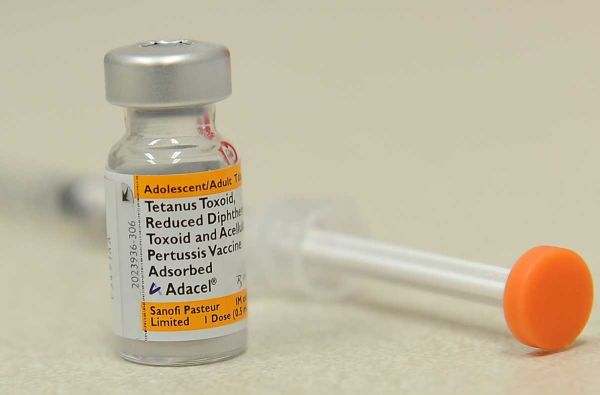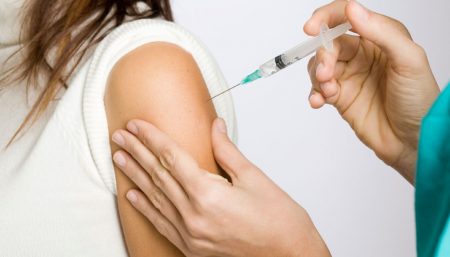Medscape recently published “Updated Recommendations for Use of Tdap Vaccine in Pregnant Women”

Since 2005, the Advisory Committee on Immunization Practices (ACIP) has recommended tetanus toxoid, reduced diphtheria toxoid and acellular pertussis (Tdap) booster vaccines to unvaccinated postpartum mothers and other family members of newborn infants to protect infants from pertussis, a strategy referred to as cocooning. On June 22, 2011, ACIP made recommendations for use of Tdap in unvaccinated pregnant women and updated recommendations on cocooning and special situations.
The Advisory Committee on Immunization Practices (ACIP) recommends:
- A single Tdap dose for persons aged 11 through 18 years who have completed the recommended childhood diphtheria and tetanus toxoids and pertussis/diphtheria and tetanus toxoids and acellular pertussis (DTP/DTaP) vaccination series, and
- For adults aged 19 through 64 years who have not previously received Tdap.
- ACIP also recommends that adults aged 65 years and older receive a single dose of Tdap if they have or anticipate having close contact with an infant aged <12 months and previously have not received Tdap.
- Two Tdap vaccines are available in the United States. Adacel (Sanofi Pasteur) is licensed for use in persons aged 11 through 64 years. Boostrix (GlaxoSmithKline Biological) is licensed for use in persons aged ≥10 years.
Recommendation for Tetanus, Diphtheria and Pertussis (Tdap) Vaccine During Pregnancy
- ACIP recommends that pregnant women who have not been previously vaccinated with Tdap should get one dose of Tdap during the third trimester or late second trimester(after 20 weeks gestation). If not administered during pregnancy, Tdap should be administered immediately postpartum.
- ACIP concluded that available data from the studies did not suggest any elevated frequency or unusual patterns of adverse events in pregnant women who received Tdap and that the few serious adverse events reported were unlikely to have been caused by the vaccine.
- When Tdap is administered during pregnancy, at time of delivery the mother will be protected, making her less likely to transmit pertussis to her infant and transplacental maternal antibodies will likely protect the infant against pertussis in early life.
- As part of standard wound management care to prevent tetanus, a tetanus toxoid—containing vaccine might be recommended for wound management in a pregnant woman if 5 years or more have elapsed since last receiving Td. If a tetanus booster is indicated for a pregnant woman who previously has not received Tdap, Tdap should be administered.
- Providers are encouraged to report Tdap administrations regardless of the trimester, to the appropriate manufacturer’s pregnancy registry: for Boostrix® to GlaxoSmithKline Biologicals at 1-888-825-5249, or for Adacel®, to sanofi pasteur at 800-822-2463. 11
What is Pertussis?
Pertussis is a highly contagious bacterial disease that causes uncontrollable, violent coughing. The coughing can make it hard to breathe. A deep “whooping” sound is often heard when the patient tries to take a breath.

Pertussis, or whooping cough, is an upper respiratory infection caused by the Bordetella pertussis or Bordetella parapertussis bacteria. The coughing can make it hard to breathe. A deep “whooping” sound is often heard when the patient tries to take a breath. It is a serious disease that can cause permanent disability in infants, and even death.
When an infected person sneezes or coughs, tiny droplets containing the bacteria move through the air, and the disease is easily spread from person to person. The infection usually lasts 6 weeks.
To learn more about, Vaccination Guidelines for Pregnant Woman, click here.
Disclaimer
The Content is not intended to be a substitute for professional medical advice, diagnosis, or treatment. Always seek the advice of your physician or other qualified health provider with any questions you may have regarding a medical condition.



